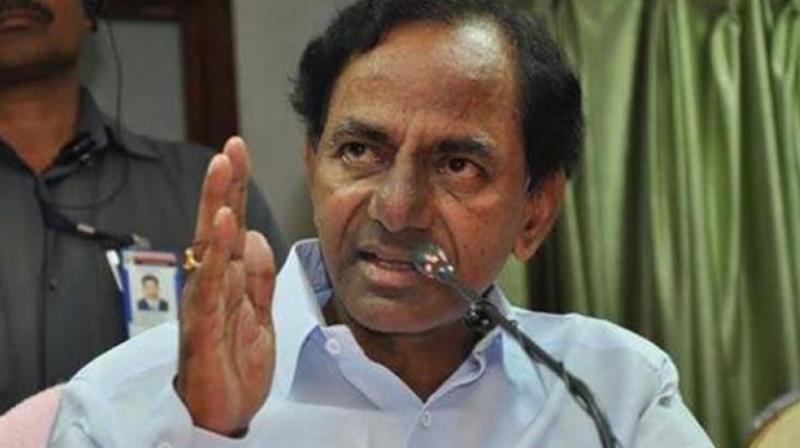Telangana: Prove or Perish' Act is legal misfit
CM's proposed action against those making complaints faces free-speech hurdles: Experts

Hyderabad: The statement of Chief Minister K. Chandrasekhar Rao that the government would enact a “prove or perish Act”, which would mandate those who make allegations against the government to prove them or face stringent action, has triggered a debate among jurists about the validity of such a legislation.
Many advocates pointed out that if the Act aimed to deter or punish people or political opponents who criticise the ruling government; it would not pass the test of legal scrutiny. If the Act curtailed voices against the government, it would be contrary to the provisions of free speech guaranteed under the Constitution.
Mr Chandrasekhar Rao, while replying to the debate on motion of thanks to the Governor’s address in the Assembly, criticised the Opposition for levelling “baseless allegations” of corruption in any programme the government takes up.
He said, “We will no longer tolerate this. Anyone making allegations on the government should prove them; else they have to face stringent action. We will soon bring an Act in this regard.”
Mr Sarasani Satyam Reddy, senior advocate of the High Court, said the Chief Minister’s statement would benefit the ruling party as it would restrain its opponents from hurling corruption allegations. He said enactment of such a law would not be easy in view of the existing provisions under the civil and criminal laws. Mere utterance could not be brought under any law, without following due procedure contemplated under existing laws, he said.
He said that in Subramanian Swamy v. Tamil Nadu before the Supreme Court, the Centre advocated retaining Sections 499 and 500 of the Indian Penal Code, saying that criminal defamation would work as a deterrent against the growing tendency to defame people through social media.
Mr C. Mallesh Rao, a criminal lawyer, said the existing provisions under the IPC for criminal defamation and civil defamation were enough to tackle persons making false or baseless allegations against individuals or the state.
Moreover, if the Chief Minister intended to bring in a special law, he would have to incorporate provisions to prosecute elected representatives for their failure in fulfilling their poll promises.
Mr A. Santosh Kumar, advocate of the High Court, said that defining the words “baseless” or “irresponsible” or “motivated” was very difficult as they were too general in nature to impute to a person and prosecute him under the proposed Act.
A person has to be given an opportunity to prove what has been uttered and only then can he be brought under the fold of the penal provision contained under the Act, he added.
He felt that the Act has to provide a mechanism for proving a particular utterance; otherwise, a genuine allegation may not be acted upon as the person making such allegation is sought to be prosecuted under the proposed Act.
Defamation law is just political tool
The Chief Minister’s statement that he intends to enact a ‘prove or perish Act’ has reminded several lawyers of the Rajiv Gandhi government’s attempt to bring in the Defamation Bill in 1988. The Bill was aim-ed at reining in newspapers but had to be withdrawn in the face of a defiant media and criticism from a cross section of society.
Lawyers say the Telangana Chief Minister’s proposed legislation goes against the global trend of decri-minalising defamatio-n. Several political leaders in India, inclu-ding Rahul Gandhi, Delhi Chief Minister Arvind Kejriwal and politician Subramani-an Swamy, have been calling for decriminalisation of the outdated defamation law.
They do so on the grounds that the criminal defamation law has an inhibitive effe-ct on freedom of speech and expression, particularly political speech.
Criminal lawyer Mallesh Rao points out that the Supreme Court has in the recent past turned down a clutch of petitions, including those of Subramanian Swamy and Rahul Gandhi, challenging provisions of criminal defamation under the Indian Penal Code. The Supreme Court has ruled that Sections 499 and 500 of the IPC are valid and do not violate the Constitution.
He said that despite the Supreme Court’s ruling upholding the penal provisions of criminal defamation, the resentment against the provisions is picking up among political leaders who allege that ruling governments have been invoking these provisions against their political opponents.

